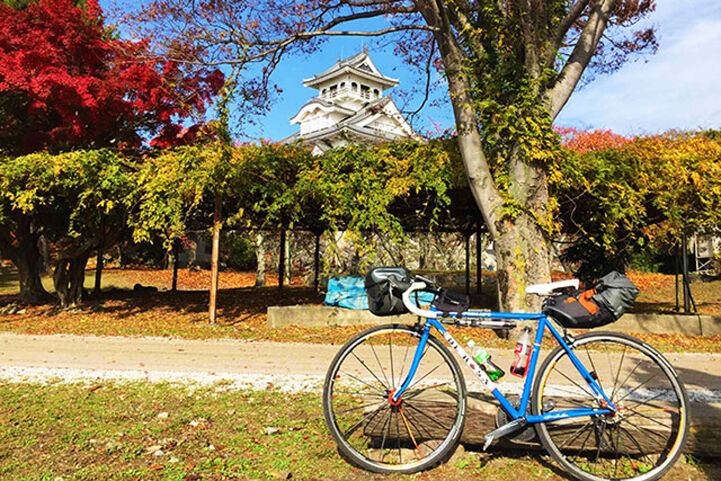ECF’s quality cycle routes methodology expands to Japan!

ECS is a unique and comprehensive methodology designed by the European Cyclists' Federation to assess the quality of cycle routes, based on a set of minimum criteria that long-distance routes need to fulfil to meet the needs of different user groups. These criteria encompass infrastructure, services for cyclists and communication aspects. Read more on the dedicated page and in the technical manual, Quality criteria for long-distance cycle routes.

The agreement for the licensing of the ECS’ intellectual property rights was signed on 12 December 2023. It grants Eminent Partners the only official use of ECS in Japan. The company, in collaboration with the Japan Cycle Tourism Promotion Association and local authorities, intends to evaluate Japanese cycle routes using the minimum quality criteria set out in the methodology, and to promote the best scoring routes both domestically and internationally under the label “JapanVelo”. Full-scale route surveys will begin in the summer of 2024.
Eminent Partners has set an ambitious program to meet these goals. The company plans to train Japanese route inspectors to carry out surveys according to the ECS methodology, assess cycle routes in Japan, suggest improvements when they do not meet some of the required quality criteria and disseminate detailed information on the cycle routes through a web platform. The route surveys will also allow Eminent Partners to provide municipalities and organisations managing the routes with an understanding of the current situation, an identification of key issues and proposals for improvement.
We have asked Eminent Partners a few questions on their motivations for using ECS and the benefits they have gained from this collaboration so far. Get to know them better in the answers below!
- What convinced you to use ECS in Japan?
First of all, ECS is an international methodology that provides a standard for route evaluation across different countries. ECS can meet diverse needs with the quality criteria that are set according to cycling skills, physical fitness, and general user needs. Additionally, ECS is based on numerical and objective evaluation of safety factors such as traffic volume and speed.
We believe that using ECS to evaluate cycle routes in Japan will contribute to addressing the diversity of cyclists and making Japan an international destination for cycle travel. Furthermore, by evaluating Japanese routes based on such a global standard, we believe that we can provide objective and easy-to-understand information to oversea cyclists, thereby increasing their interest in Japanese routes.
- What are the main challenges you face in Japan for developing long-distance cycle routes?
Differences in cooperation and thinking among local governments are a challenge. We would definitely like to learn from the experience and knowledge gathered from developing and improving EuroVelo routes that span multiple countries and regions.
- How have you benefitted from the collaboration with ECF and other European stakeholders so far?
We believe that the main advantage from this collaboration is that we can officially introduce ECS to Japan by signing an IP agreement. After applying the methodology, we will label routes that meet the ECS criteria as JapanVelo, and disseminate information about them. We have asked many questions about the concept and methods of ECS and have always been very grateful to receive detailed answers from ECF. We hope we can continue to strengthen our cooperation.
Author: Florence Grégoire